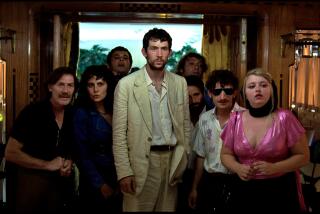Unusual collaborations in ‘The Sisters Brothers’ lead to a new vision of the Old West
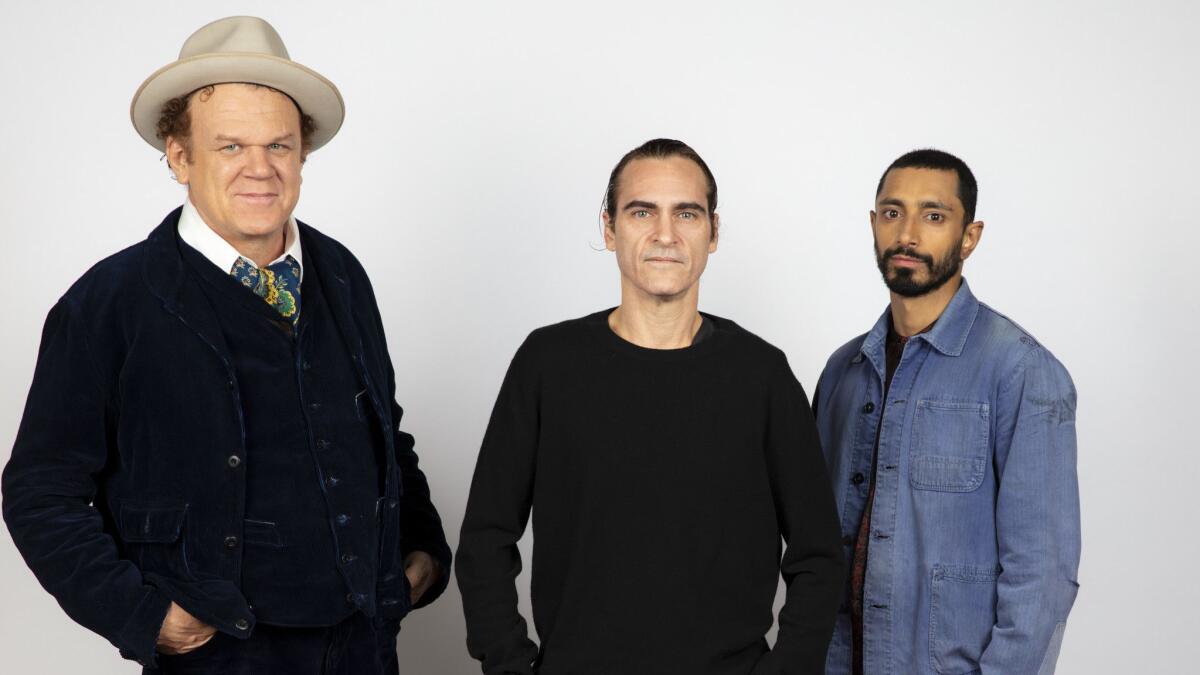
For anyone who thinks there are no new stories, or ways to tell them, from the lore of the Old West, “The Sisters Brothers” would like a word.
The movie is the English-language debut of French filmmaker Jacques Audiard, whose 2009 drama “A Prophet” was nominated for a foreign-language film Academy Award and whose 2015 film “Dheepan” won the Cannes Film Festival’s Palme d’Or. Bringing a snaking, sneaky storytelling to the tale of two brothers in 1851 trying to find out if there can be more to their lives than their jobs as killers-for-hire, “The Sisters Brothers,” which opened in L.A. on Sept. 21 and has steadily been expanding, is by turns rawhide rough and violent, comedic, lyrical and settles upon an unlikely grace.
As adapted by Audiard and his frequent collaborator Thomas Bidegain from the 2011 novel by Patrick deWitt, the story continually reinvents itself as it reorients the viewer within its world, turning the Wild West into an expansive place of wide-open emotions.
“I don’t think the world needs another western, it needs something else,” Audiard said recently in Los Angeles.
“I really loved the book, it’s a great story. But I’m French, so the western is not my history,” he said. “For me it’s just a period piece. It happens during the gold rush, with men on horses, wearing hats and guns, that’s what they did at that time. So what we liked about it was the fairy-tale quality, there was something about it that really appealed to us.”
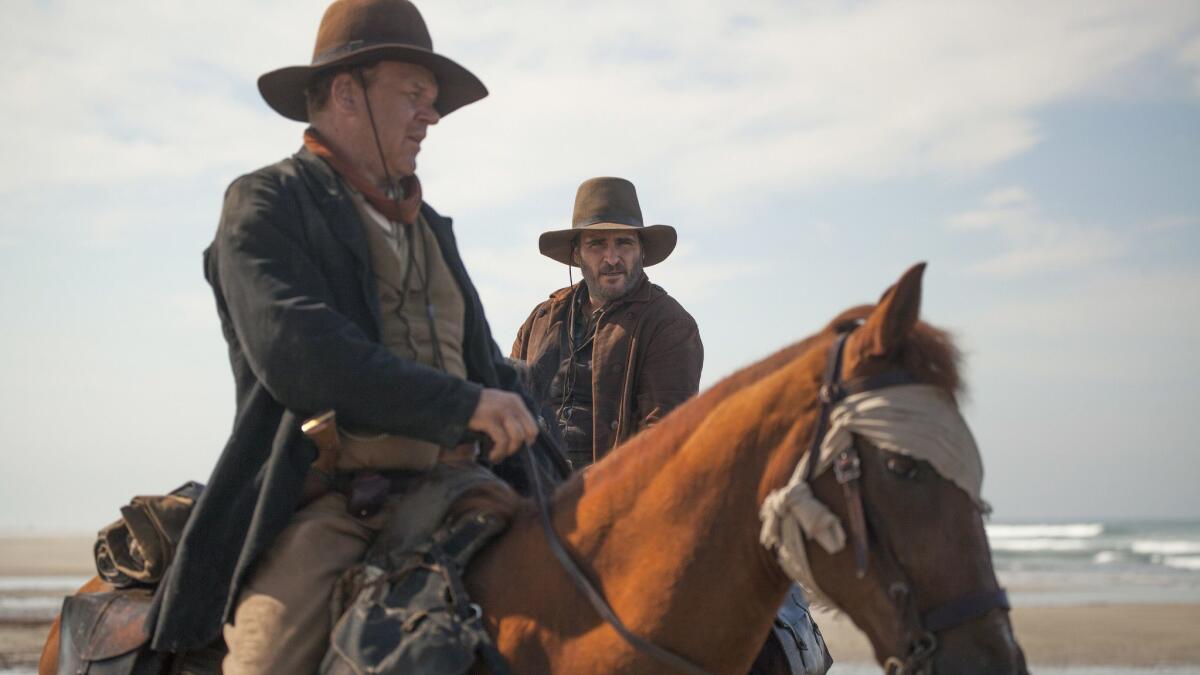
There’s no reason to make a western for a western’s sake. ... So Jacques made a personal film out of this material.
— John C. Reilly on filmmaker Jacques Audiard
The film tells the story of Eli and Charlie Sisters (John C. Reilly and Joaquin Phoenix), bound together by a life of trauma and crime, as they set out to track down two men, the refined dandy John Morris (Jake Gyllenhaal) and idealistic chemist Hermann Kermit Warm (Riz Ahmed).
The project had its origins when producer Alison Dickey optioned deWitt’s book even before it was published in 2011, as she was working on the film “Terri,” based on another of the writer’s stories. She shared the book with Reilly, also her husband, and he decided to be a producer on the project as well. The two of them, along with producer Michael De Luca, took it to Audiard, and his producers at Why Not Productions, Pascal Caucheteux and Grégoire Sorlat, signed on too.
“I don’t really know of any other filmmaker that works the way that he does and who can accomplish what he does in the film,” said Dickey of why they took the project to Audiard. “He’s often described as being very visceral and even gritty and tough, but there’s always this sort of undercurrent of emotion that’s so real and palpable.”
“That’s what we were looking for, to put the story in the capable hands of someone who was going to take it and make a really personal story out of it,” Reilly said. “We weren’t interested in making another clichéd western, there’s no reason to make a western for a western’s sake. There’s plenty of them out there. Great ones. So Jacques made a personal film out of this material.”
If there was any risk in trusting a classically American story to the hands of a filmmaker who had never made a movie in English before, the bet appears to have paid off. Following the film’s world premiere at the Venice Film Festival, Audiard won the festival’s prize for best director.
Audiard’s multicultural, polyglot vision of the Old West depicted in front of the camera was mirrored by the production itself, with many different languages being spoken on-set among the cast and crew. Rather than working along the Oregon trail where the story is set, the film was shot in Spain and Romania. Audiard used Belgian cinematographer Benoît Debie, known for his work with Gaspar Noé and Harmony Korine. French-born, two-time Oscar winner Alexandre Desplat, a longtime collaborator with Audiard, composed the score. Italian-born Milena Canonero, a four-time Oscar winner going back to Stanley Kubrick’s “Barry Lyndon,” designed the film’s costumes.
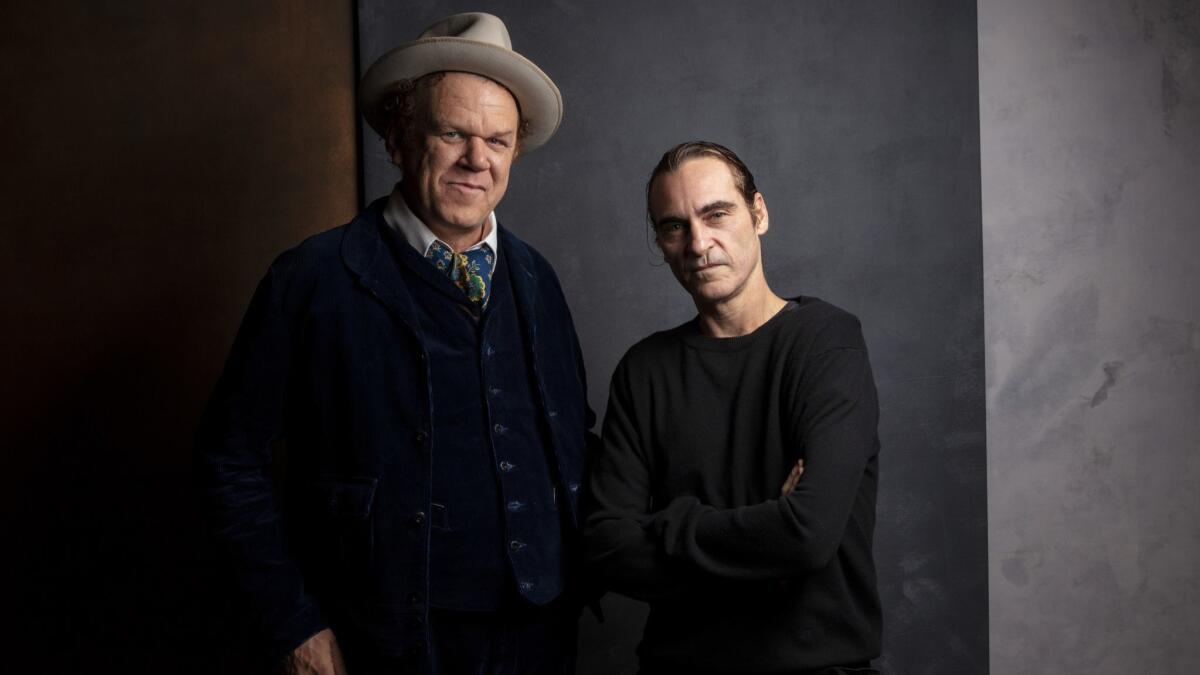
Audiard’s innovations were on every aspect of the film, both big and small. He and Bidegain elevated the characters of Morris and Warm from the book, turning the story’s middle section into something of a four-hander where one pair of men chase the other pair of men until they come together for a momentary, utopian idyll. The character of a frontier town’s boss, a man in the book, was cast with British actress Rebecca Root.
For Audiard, working with American performers like Reilly, Phoenix and Gyllenhaal or the British-born Ahmed was a big part of the project’s appeal. He was immediately impressed by the amount of preparation done by the actors.
“They come and the character is there from the start,” he said. “In France it’s different, you have to bring the actors to the character, and here the characters are already there. They own their characters.”
The unpredictability of Phoenix in particular was exciting for Audiard and Reilly alike.
“From a director, he really asks simple questions,” Audiard said of Phoenix. “If you tell him to go left, you can be totally sure he’s going to go right.”
“No one does what Joaquin does,” added Reilly. “In some ways it’s like watching a wild animal on one of those nature cams, like ‘What is it going to do now?’ And that’s a real accomplishment, given all the planning and preparation that goes into filmmaking, to be able to be that alive.”
If you tell him to go left, you can be totally sure he’s going to go right.
— Jacques Audiard on working with Joaquin Phoenix
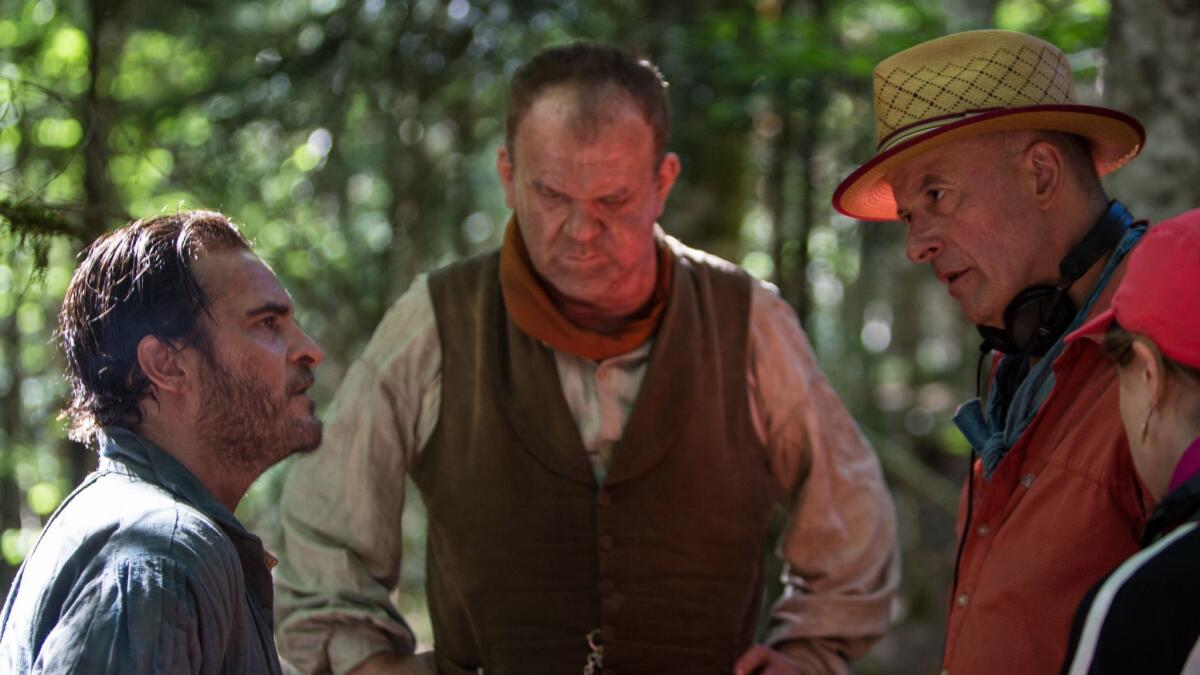
Phoenix first read the book and then the script and was pulled in by all the ways in which the story deviated from a traditional western.
“I don’t really know westerns,” said Phoenix in an interview at the Toronto International Film Festival just ahead of beginning work on the highly-anticipated “Joker” project. “I have this idea that’s probably inaccurate, but I feel like the characters in westerns are always stoic. … And with [‘The Sisters Brothers’] I felt like there was an opportunity for a different kind of character and a personality that we hadn’t really seen before. Which I thought was just refreshing and interesting.”
The movie was the fourth Phoenix has made in the stretch of one year, after having not worked for two years, and he was initially reluctant to depart for shooting in Europe. He and Reilly had briefly met before the project came about through their mutual friend, filmmaker Paul Thomas Anderson. In creating the bonds of brothers who had spent every sunrise and sunset together for years and years, the two actors lived as roommates for part of the production, when Phoenix stayed in the spare room of Reilly’s rental accommodations.
“I think it forced us to be close,” Phoenix noted. “And it was great to go to work and come back. I’d make some fancy sauce and we’d have some pasta and it was great.”
“We basically just started spending all of our time together. It was as simple as that,” said Reilly. “The relationship between us became by the end of shooting a lot like the relationship of Eli and Charlie, minus the murder.”
For Reilly and Dickey, their initial idea of reaching out to a filmmaker like Audiard has paid off in ways they never would have predicted, to create a film that exceeded their expectations.
“There’s a lot of relevance here because one of Jacques’ main concerns to begin with was, ‘Why should we do this?’” said Reilly. “And then we set about finding the film inside of the book — and inside that film was all kinds of questions about masculinity and the future and optimism and facing your past and dealing with your family relationships and what is predetermined and what is a choice. This idea that even the worst people or the people who have done terrible things are still capable of transformation and change — I think that’s a really cool idea.”
SIGN UP for the free Indie Focus movies newsletter »
Follow on Twitter: @IndieFocus
More to Read
Only good movies
Get the Indie Focus newsletter, Mark Olsen's weekly guide to the world of cinema.
You may occasionally receive promotional content from the Los Angeles Times.


